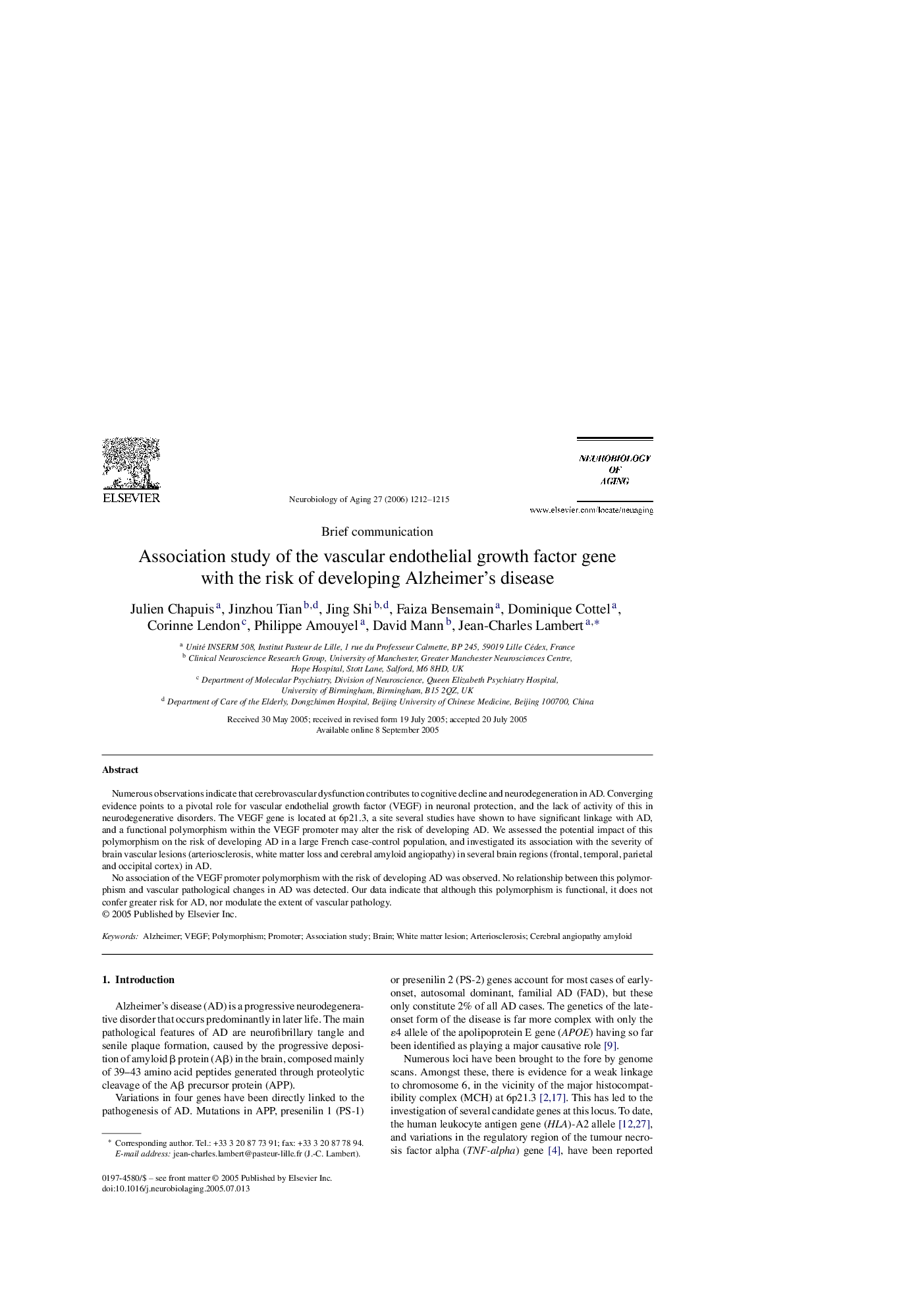| Article ID | Journal | Published Year | Pages | File Type |
|---|---|---|---|---|
| 329538 | Neurobiology of Aging | 2006 | 4 Pages |
Numerous observations indicate that cerebrovascular dysfunction contributes to cognitive decline and neurodegeneration in AD. Converging evidence points to a pivotal role for vascular endothelial growth factor (VEGF) in neuronal protection, and the lack of activity of this in neurodegenerative disorders. The VEGF gene is located at 6p21.3, a site several studies have shown to have significant linkage with AD, and a functional polymorphism within the VEGF promoter may alter the risk of developing AD. We assessed the potential impact of this polymorphism on the risk of developing AD in a large French case-control population, and investigated its association with the severity of brain vascular lesions (arteriosclerosis, white matter loss and cerebral amyloid angiopathy) in several brain regions (frontal, temporal, parietal and occipital cortex) in AD.No association of the VEGF promoter polymorphism with the risk of developing AD was observed. No relationship between this polymorphism and vascular pathological changes in AD was detected. Our data indicate that although this polymorphism is functional, it does not confer greater risk for AD, nor modulate the extent of vascular pathology.
